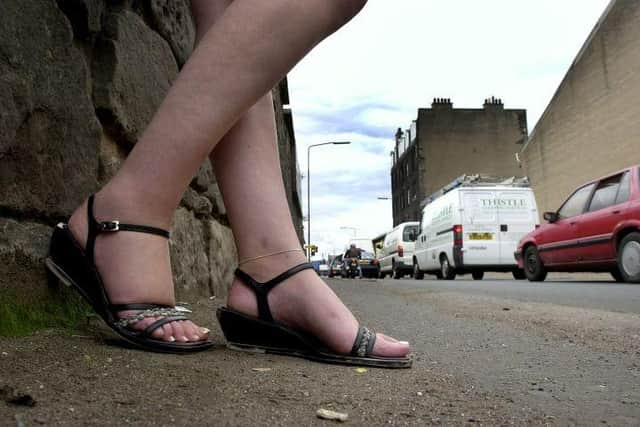Scottish charity slams government for plans to criminalise prostitution
Umbrella Lane, which says it is the “only peer-led support organisation for sex workers in the whole of Scotland”, also hit out at a lack of government funding for its services.
The charity did not receive any of the £90,000 announced by the Scottish Government on Wednesday to support three other bodies working to supply services to help women engaged in prostitution.


Advertisement
Hide AdAdvertisement
Hide AdIt also claims the results of a recent government consultation proved the purchase of sex should be decriminalised.
Community safety minister Ash Denham has said the consultation received more than 4,000 responses which were “polarised” between those in favour of criminalising the purchase of sex and those favouring total decriminalisation.
As a result, she said, the government would design “bespoke” Scottish proposals, which would “tackle prostitution in line with our broader ambitions to be a progressive nation in relation to women’s rights and addressing gender inequality".
However, Umbrella Lane said it was "frustrated” at the government plans and it had “yet again been left out of vital funding for services”.
The organisation also criticised the government’s stance “on viewing all prostitution as a form of violence against women and girls” and said criminalising men who buy sex would “remove women’s agency, increase stigma and drive the trade further underground”, which would make women “less likely to seek support for their health and wellbeing”.
Chief executive Anastacia Ryan said: “It’s fantastic that so many people responded to the consultation on sex work legislation – particularly those with lived experience of sex work – and it shows that many more people are in support of decriminalisation as a legal framework.
“While we welcome the Scottish Government’s commitment to working with specialist groups like Umbrella Lane who support sex workers, currently it only seems to value this in the context of service design.
"Involvement of sex workers has to be more than tokenistic, and invite sex workers to shape the policy that effects their lives and livelihoods. We know from working with sex workers that they don’t want the purchase of sex to be criminalised.”
Advertisement
Hide AdAdvertisement
Hide AdPrerna Menon, the charity’s co-ordinator, said: “It feels frustrating that while the consultation responses make it clear from sex workers own voices that more meaningful engagement from peer-led groups is needed, we have been left out of the extra 90K funding released by the Scottish Government and this is despite being the only peer-led support organisation for sex workers in the whole of Scotland.
"In line with our values, we will continue to build relationships with the organisations that emergency funding has been awarded, but only as far as we can with already limited resources.”
However, Christian charity CARE welcomed the government’s plans and said it would support “specific legislation to criminalise the purchase of sex”.
Michael Veitch, parliamentary officer at CARE, said: “We welcome the commitment to develop a tailored Scottish model, and to draw on international approaches seeking to challenge men’s demand for sex. It is now imperative that concrete action to criminalise those who exploit women through the purchasing of sex be urgently brought forward.”
